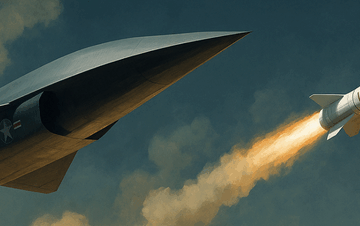In August 1953, the Shah of Iran removed his prime minister, Mohamad Mosaddeq, from his office. The prime minister, who served at the pleasure of the Shah, was in the midst of leading a Marxist-inspired revolution to topple the constitutional monarchy of Iran. Contrary to the story often told, Mosaddeq was not removed in any coup. Shah Mohammad Reza Pahlavi determined his prime minister was a threat to the Iranian constitution and legitimately chose to remove him as the head of his government. It was Mosaddeq’s revolutionary actions and unwillingness to follow the Shah’s command that forced the military to support the Shah’s defense of the constitution.
While many readers may not be familiar with the inner workings of constitutional monarchies, it is important to keep in mind that a prime minister serves at the pleasure of the monarch, in whose name the prime minister forms a government. While not common, the monarch can remove the prime minister due to a loss of confidence. In the case of Iran (1953), the Shah saw Mosaddeq as a threat to the constitutional order, which, in fact, he was.
The Shah’s restoration of constitutional order in 1953 also addressed three important geostrategic issues. The first concerned the nature of Iran’s government and how its leadership would be determined. In 1951, as a member of the parliament or Majles, and subsequently as prime minister, Mosaddeq pushed for a public referendum to have the parliament dismissed and the constitutional monarchy eliminated, which would have given him virtual dictatorial powers to rule.
By 1953, as prime minister, Mosaddeq again called for just such a public referendum to choose between his government by decree and what he viewed as an antiquated monarchy. The referendum passed overwhelmingly, and Mosaddeq signed a decree calling for the results to be implemented although Iran’s constitution recognized no such role for referendums. The prime minister was clearly seeking to engage in unconstitutional activities.
The second issue was Mosaddeq’s long sought effort to nationalize Iran’s oil reserves, then controlled jointly through the Anglo-Persian Oil Company. In 1951, prior to becoming prime minister, he led parliament to pass legislation nationalizing Iranian oil assets. The United Kingdom took Iran to the International Court of Justice (ICJ), but because Iran did not recognize the authority of the ICJ, the court dismissed the lawsuit in 1952. This ultimately led the UK to organize a boycott of Iranian oil exports, which was effective in preventing Iranian oil, 50 percent of the nation’s foreign currency assets, from being sold on the international market.
The third issue was Mosaddeq’s growing rapprochement with the Soviet Union (USSR) and reliance on the pro-Soviet Tudeh Party as an important source of political support. Moscow was looking to control more oil resources, particularly those in Iran and the Middle East, which led the Soviets to actively engage in the spread of communist propaganda and revolutionary efforts in the region.
The American Role
For supporters of today’s regime in Tehran, it is an article of faith that the US and UK illegitimately overthrew a popular and democratic ruler, Mosaddeq, over a desire to keep Iranian oil resources under British control and an unwarranted fear of communism.
The Associated Press for example, concluded that what they saw was a “reactionary CIA-led 1953 coup against revolutionary Mosaddeq” which “lit the fuse” for the 1979 Islamic revolution a quarter century later. All the elements were there—greed for oil, a supposed push to stop popular democracy, and an irrational fear of communism—to make the United States, the United Kingdom, and the Central Intelligence Agency (CIA) the “bad guys” in this narrative.
By accepting the narrative that Iran’s path toward progressive democracy was hijacked by the CIA, wholesale excuses are possible to explain away Iran’s terrorist enterprise over the past four decades. For many fellow travelers in the West, the fictional “coup” against Mosaddeq provided an excuse for avoiding a confrontation with Iran over its rogue behavior.
Iran’s mullahs describe American and British action from 1953–1979 as “the great arrogance”—the meddling in Iranian affairs by foreign interests. However, the legitimate constitutional restoration of the Shah (1953) was led by a completely legitimate loyalist-royalist coalition made up of members of the Iranian military, the Iranian theocracy, Shah Mohamed Reza Pahlavi’s supporters, and supporters of the Iranian constitution. The Shah legitimately issued two decrees on August 19, 1953, dismissing Mosaddeq as prime minister and appointing General Fazlollah Zahedi as prime minister.
The American desire to staunch the spread of communism was a perfectly legitimate concern that led President Dwight D. Eisenhower to support constitutional government under the Shah. For the British, without whose investment in infrastructure, processing, and export there would be no Iranian oil to export, legitimate financial interests were at stake. The Soviet Union also cared about oil. In the early 1950s, Iranian oil and gas reserves were a growing part of known oil and gas reserves. Control over them would provide economic and diplomatic leverage for an economically impoverished Soviet state.
It should come as no surprise that a false narrative surrounding Mosaddeq’s removal developed almost immediately. Reality, however, is far different. Mohammad Mosaddeq was legitimately removed from power for attempting to topple the constitutional monarchy on behalf of the Soviet-supported Tudeh party. American and British support was exactly what the Shah required to restore the constitution. The ultimate collapse of the Shah’s government and its replacement with an Islamic fundamentalist theocracy is a tragedy the United States regrets even to this day.
Peter Huessy and Joe Buff are Senior Fellows at the National Institute for Deterrence Studies. The views expressed are their own.






